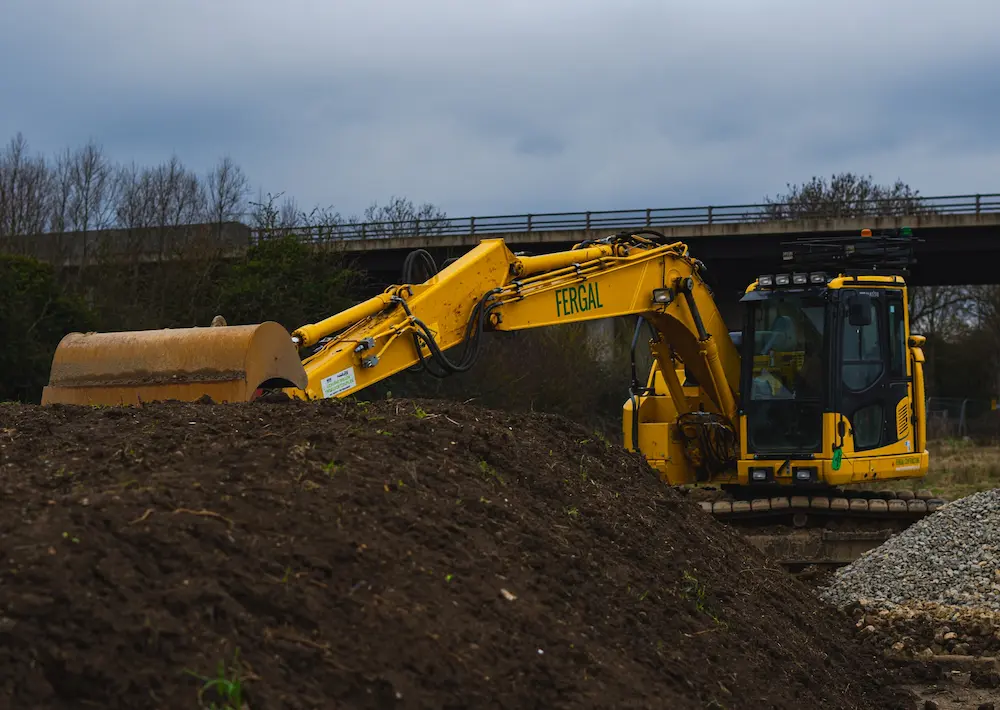Starting the journey of real estate development is similar to establishing sail in unfamiliar waters. The currents can be unpredictable during the initial stages. Land developers face a slew of challenges that put their tenacity and business acumen to the test. And it takes a lot to set a startup apart in an industry with 57,000 businesses competing with you (as of 2022 statistics in the US market).
You shouldn’t stress out because we have a few actionable tips to help. You will learn everything from dealing with complicated regulatory scenery to getting financing for ambitious endeavors. The early stages necessitate vision and an in-depth knowledge of the industry’s complexities.
We will delve into the roadblocks that frequently affect land development startups. So, get ready to explore the treacherous terrains where challenges become possibilities for expansion, creativity, and achievement in the ever-evolving land development market.
Challenge #1: Securing initial capital
Obtaining the funds you need to turn dreams into actuality is one of the most challenging obstacles you may face in the beginning phases of land development. The monetary needs range from acquiring land to starting construction. Financial institutions may hesitate to invest in an emerging company with an untested track record.
Entrepreneurs can turn to a combination of loans, individual investors, and fundraising. It helps them to bridge the initial funding gap. Creating a solid financial strategy and demonstrating the long-term worth of your projects can instill trust in investors in the future. It facilitates the critical capital infusion required to kickstart your land growth venture.
Challenge #2: Conducting accurate market research
Land development takes more than just bricks and mortar. It is also about comprehending the complex nature of market forces. Inadequate market research can lead to erroneous decisions. It hampers the success of your endeavors.
You should determine target demographics, assess the popularity of specific segments, and stay on top of changing trends. Complete market research lays the groundwork for well-informed choices. It ensures that your land development startup aligns with consumer demands and trends. It lays the groundwork for long-term growth.
Challenge #3: Establishing essential infrastructure
Developing a solid infrastructure is critical in developing land, and a lack of it can be an enormous obstacle. Ensuring that all the required elements are in place(from utilities to roads) requires cooperation with local governments.
Delays or problems with setting up infrastructure can stymie project timelines. It also drives up costs. Dealing with this challenge necessitates careful project management, open communication with customers, and the ability to adapt to unexpected events while upholding the creation of the plan’s integrity.
Challenge #4: Addressing Environmental Impact Assessments
Land developers have to cope with the complicated world of ecological impact assessments (EIAs) as environmental concerns take center stage. Questions like whether there are wetlands near me can haunt you from the beginning of a project. The best solution is to ensure that you choose the right location.
Ensuring environmental laws are followed and potential adverse impacts on ecosystems are mitigated requires time, knowledge, and financial resources. Early consultation with environmental professionals can assist in identifying and addressing potential issues. It helps you speed up the approval process.
Challenge #5: Navigating complex regulations
The regulatory environment in land use is frequently complex, with zoning rules, building codes, and other rules varying throughout jurisdictions. Dealing with this complicated web necessitates legal knowledge and a proactive approach to conformity. Knowing and sticking to regulations is critical to preventing legal issues that can derail assignments.
Establishing strong relationships with the local government and legal counsel can help simplify the regulatory procedure. It ensures that your startup follows the legal regulations while seeking its objectives for growth.
Challenge #6: Facing resistance from local communities
Another challenge you may face as a startup owner in the land development market is resistance from local communities. Understand what may go wrong for the current residents after your project starts. It may be noise, water pollution, or anything else that disrupts their lives.
Ensure that the local communities benefit from your project so that they support it. You may need to do a bit to educate them about these benefits, but the effort is worthwhile.
Conclusion
Beginning a journey in real estate development during the initial startup phase necessitates an in-depth awareness of potential challenges. You must secure the initial funding, tackle ecological impact assessments, manage complex regulations, and cultivate positive community relations.
These are all opportunities for growth and refinement. Savvy developers look at these challenges with flexibility, resilience, and a strategic mindset, turning roadblocks into steps toward thriving, ecologically sound environments. Keep in mind that challenges are a fundamental component of the journey as you navigate the terrain of developing land.

